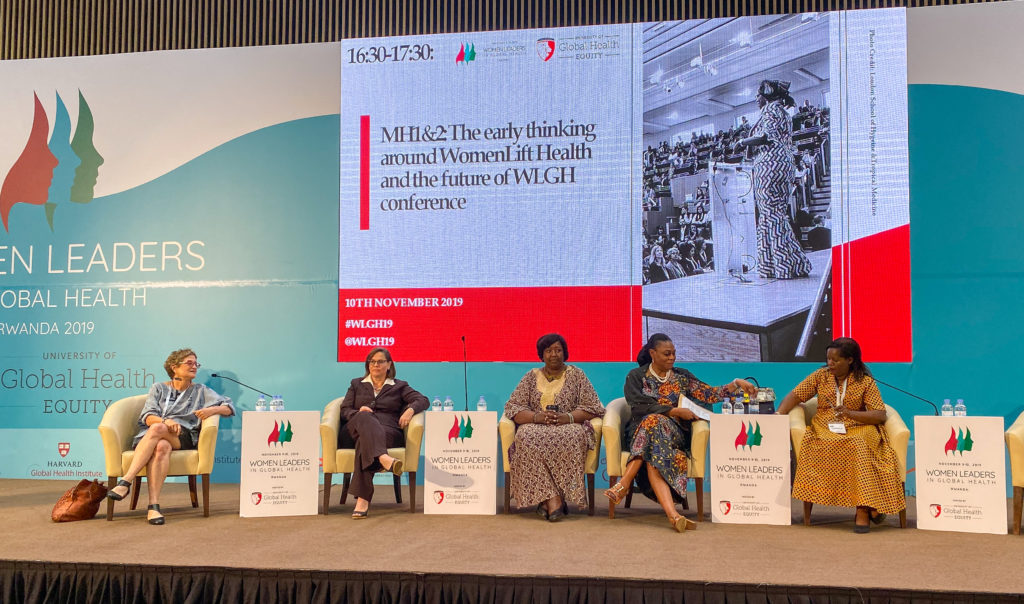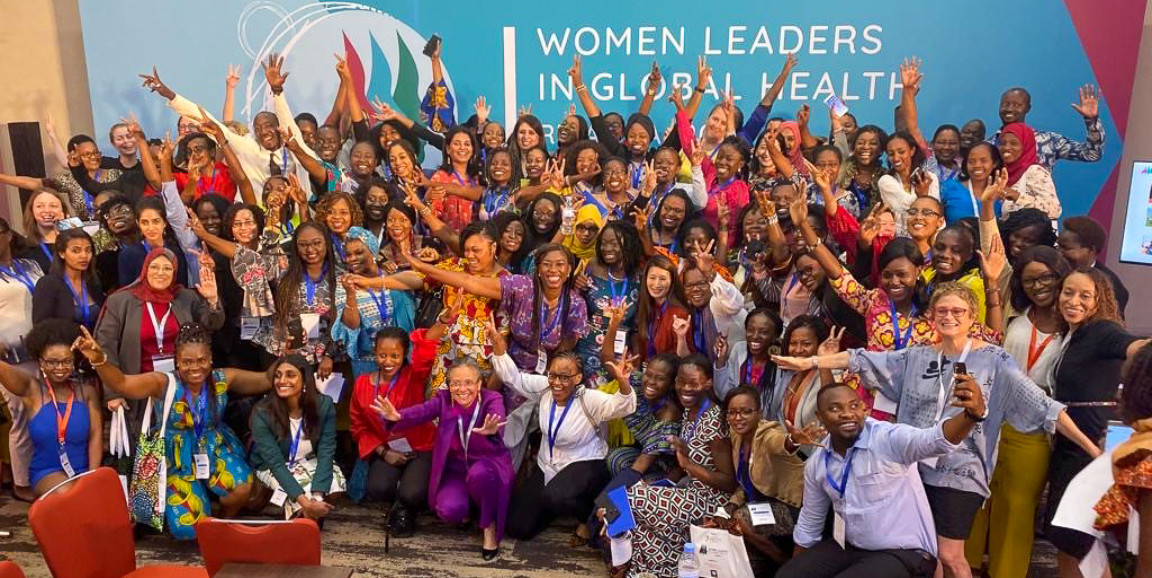Francis Collins, MD, PhD, the director of the National Institutes of Health, serves on panels at academic conferences all the time but his experience in Ethiopia this year for the Bill and Melinda Gates Grand Challenges was different. He opened his remarks at the Ethiopia Grand Challenges by saying this is certainly not a "manposium" and when placed on a panel as the only man he said, "This is a really odd feeling."
I said welcome to my life.
After the Grand Challenges, I went to Rwanda for the Women Leaders in Global Health Conference, a conference series which started at Stanford in 2017.
When I launched the first conference at Stanford, it really was a reaction to my being turned off by the fact that most leaders in global health both in the U.S. and in Africa were male. I decided to have a small conference to discuss why this happened and what were the challenges for women trying to attain leadership positions.
That first conference was just mind-blowing. We only had room for 400 people and 1,500 women tried to enroll so many women wound up watching on livestream.
The second conference, hosted by the London School of Hygiene and Tropical Medicine, was larger and more diverse than the first. We built upon the conversations we had started at Stanford about what were the actual obstacles.
We had three main areas that that were highlighted. One that was clearly formidable was the overt and implicit bias and stereotyping that thwarted academic career paths for women. The second one was the difficulty of family and career integration for women. The third was gender discrimination; women were not being nominated for panels or awards or being given recognition as first author on academic papers.
At the London meeting we realized we needed to engage more men in the conversation therefore, at the conference at the University of Global Health Equity (UGHE) in Rwanda this fall, we decided that every single panel had to have a man.
Paul Farmer, MD, PhD, is the founder and chief strategist for the global nonprofit Partners in Health and the chancellor of UGHE. He opened the conference by saying, "I can't believe I'm facing all these women."
Both Collins and Farmer are white men who have attained power and status in global health. It was good to hear them both acknowledge what women in this field have long experienced.

More than 1,000 people -- the majority from African nations -- attended the conference in Rwanda. As we have at each conference, we included a mentorship breakfast. This was organized by Ayoade Olatunbosun-Alakija, MD, the chief humanitarian officer for Nigeria.
Men who had attended were sitting at one table. When the breakfast started, Olatunbosun-Alakija called over Amie Batson, who leads the women leaders initiative for Stanford's Center for Innovation in Global Health.
"Amie, come sit here," she said, so Amie squished in at the table with men. Then Olatunbosun-Alakija called on another women to squeeze in there as well. And finally, she stood on top of the table and told the women in the room, "When you can't get at the table, you either squish yourself in or stand on top of it."
And you could see all the men at the table looking up her. It was a powerful visual. And it shows what we need to do to increase the diversity of leaders in global health. We need educate men on the barriers women face and encourage them to work with us to dismantle those barriers. We also need to inspire young women who want to work in global health and help them on their paths to leadership.
The conference will continue in a new location every year. Next year, it will be in India, where we hope to galvanize our South Asian sisters.
And in the future, the conferences will fit into a bigger program that will include leadership training, skills building, networking and more mentorship so that we can change the make-up of the leadership so that leaders in global health better represent the diverse populations that they serve.
Michele Barry, MD, is the director of the Center for Innovation in Global Health at Stanford.
Photos courtesy of Allison Philips




